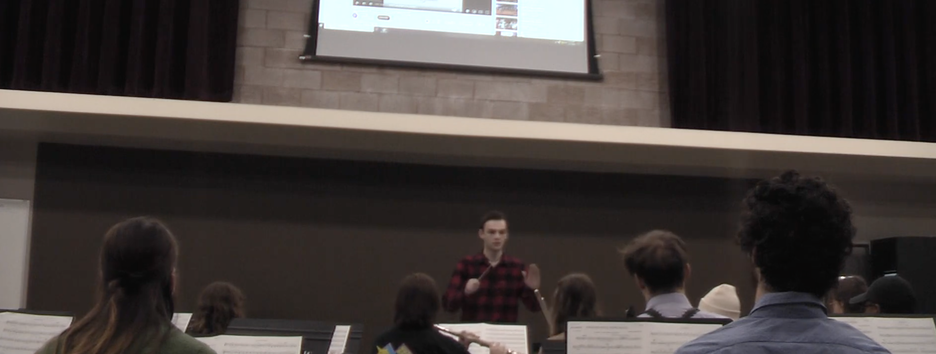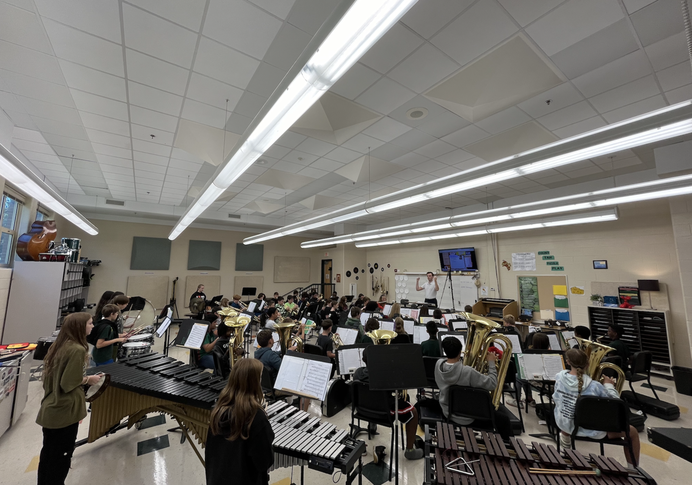Philosophy of Education
Music education is one of the most diverse and influential areas within the field of music. Performers, conductors, composers—no matter their path—all owe a part of their journey to the foundation provided by music education. Regardless of your role in music, there is always an educational component intertwined with it. For instance, a successful orchestral principal player must possess not only performance skills but also the ability to lead and educate their section. Similarly, a great composer must communicate their musical ideas clearly to the performers bringing their work to life. In short, music education is the common thread that runs through every musical pursuit.
While music education encompasses many branches, they all grow from the same root: the student. As educators, it is our responsibility to ensure that every student feels they belong and are supported in their musical journey. Fortunately, music offers one of the most inclusive environments in all of education. For many students—myself included—music classrooms serve as a second home, a place of self-expression and safety. While music may not be for everyone, it is our job as educators to help students discover whether it can be their space.
My ultimate goal is to become a college professor and lead my own studio. I’ve made a promise to myself that no matter who joins my studio, it will always be a positive, welcoming, and supportive environment. Every student will have a place—regardless of their skill level or career path. I believe in building a studio culture where growth, creativity, and belonging come first.
-Logan Hayungs
Private Instruction
Private teaching is one of the most impactful forms of music instruction—and it's something I’m deeply passionate about. Whether a student aspires to a professional career in music or simply wants to improve their skills, private lessons offer a personalized and focused environment where real growth happens. I believe every student should not only experience the benefits of private instruction but also understand its long-term value.
Building Strong Fundamentals and Creating Good Habits
The foundation of great playing begins with the development of good habits. Early introduction to strong fundamentals sets students up for lasting success. While every student is unique, I focus on key aspects such as sound quality, comfort and efficiency—especially in the low register—and consistency in daily practice routines. Some of the habits I help students develop include: Regular metronome use, thoughtful application of the third valve slide, slowing down difficult passages to improve accuracy, and structuring practice time effectively. These may seem like small details, but when practiced consistently, they lead to major breakthroughs. I approach each lesson with the long-term success of the student in mind—especially for younger players who are just beginning their journey. With the right guidance and mindset, students can exceed their own expectations and build a lifelong relationship with music.
Long and Short Term Goals
One of the first things I ask every student is: What are your goals—both short and long term? Setting goals with clear intent gives direction to every practice session and lesson. Whether a student wants to master a specific piece over the summer or dreams of performing in a major orchestra ten years from now, having defined goals creates purpose and momentum. Short-term goals might include preparing for an upcoming audition, improving tone quality, or learning a new etude. Long-term goals often involve broader aspirations like earning a spot in an honor ensemble, pursuing music in college, or building a professional career. Understanding a student’s intentions allows me to help map out a path that’s realistic, motivating, and tailored to their individual journey. Every student brings different strengths, dreams, and timelines—and that’s what makes private instruction so rewarding. My job is to help each player define their intent, track their progress, and celebrate their growth along the way.
Rates
Virtual lessons (Zoom, FaceTime, etc.) = $15/half hour, $20/full hour
In-Person lessons (Jonesboro, AR area) = $20/half hour, $30/full hour
Student Teaching Experience
Logan conducting the Wilson Middle School combined 7th grade band
I had the privilege of teaching as such wonderful schools during my student teaching experience. I began in Fishersville, VA, where I worked with Timothy (Tim) DeSimone and the Wilson Middle School band program. Going into this placement, I was a little nervous since I have never truly worked with students around this age. Luckily, Tim was an excellent mentor, and he made everything feel extremely easy. Enjoyment wise, I loved teaching middle school aged students! It was so much fun to take everything down to the basic level of music while also giving some intermediate-level tips to those students who were excelling at their instruments. During this placement, I got a ton of experience when it comes to classroom management. Middle schoolers being as energetic as they are, I learned so many different techniques from Tim as well some that were based on my own personal experiences. Musically, I worked a lot with the students on rhythm, ensemble blend, and learning some brand new pieces. It was at this placement that I realized how important the ratio of "feedback" and "playing" is. While feedback is extremely important, what is more important is the students playing on their instruments. After all, the more they play, the better the outcome will be.
My high school placement was a very interesting one. I was placed at Harrisonburg High School, and for reference, I have been the trumpet instructor with their marching band for 2 years at this point. In short, I already had previous relationships built with the majority of the students there, so It was not much of a new experience from that standpoint. That did not stop me from soaking up as much information as possible from my cooperative teacher, Daniel Upton. One of the strongest takeaways I got from this experience was just how important a student to teacher relationship is. It sounds obvious, but many teachers overlook it. The way Daniel portrays himself to his students is almost like a father-figure. He gets grumpy with them a lot, but when something is serious he makes it very obvious and shows that to the students. All of his students understand this, and it creates an extremely unique relationship between them. So much to the point where if anyone else tries to imitate Daniel's behavior, the students recognize it right away and noticeably are not as attentive. Building this relationship with your students is so important, whether you are putting on a happy persona or a grumpy one. While every student is different, it does not mean we should treat them differently. Overall, I had an extremely enjoyable student teaching process, and I believe I could not have had a better experience with such incredible schools.

